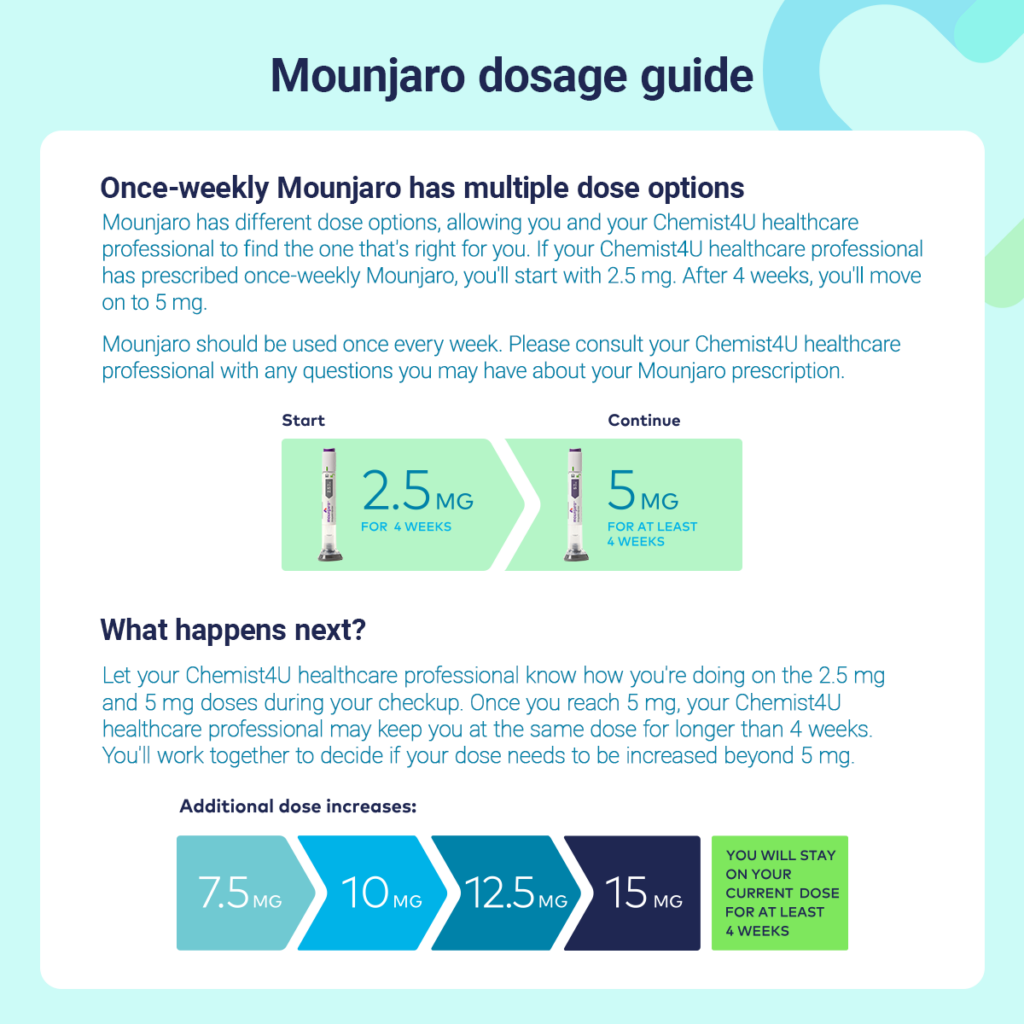If you’re considering Mounjaro (tirzepatide) for weight loss, you may be wondering if there’s a best time of day to take it. Does it matter if you inject it in the morning or at night? While Mounjaro has gained popularity as an effective weight-loss medication, many users are uncertain about the best time to incorporate it into their routine for optimal results. It’s a valid question, especially when you’re trying to balance its potential benefits with your lifestyle. In this post, we’ll dive into everything you need to know, including the most commonly recommended times for taking Mounjaro, how it might impact your weight loss journey, and real-life experiences from users just like you.
Understanding Mounjaro and Its Role in Weight Loss
Mounjaro is a newer medication used for managing type 2 diabetes and has recently gained attention for its ability to assist in weight loss. It’s an injectable medication that works by stimulating GLP-1 receptors, which help regulate blood sugar, slow gastric emptying, and reduce appetite. As a result, it can help those with obesity or overweight conditions manage their weight more effectively. But, like any new medication, the big question is: when should you take it for the best results?
Many wonder if timing affects how Mounjaro works. According to research and expert advice, the answer might surprise you. While timing doesn’t dramatically alter its effectiveness, taking Mounjaro at the right time for your body and schedule could enhance your experience with the medication.

Can Timing Affect How Mounjaro Works for Weight Loss?
The Truth About Timing and Effectiveness
So, is there a perfect time to take Mounjaro for weight loss? The straightforward answer is no, it doesn’t significantly matter whether you inject it in the morning, afternoon, or night. Studies and expert advice show that Mounjaro works the same way, regardless of when you take it during the day. The most important thing is to establish a consistent schedule for your weekly injections. This consistency ensures that you maintain steady levels of the medication in your system, which is essential for its long-term effectiveness.
That said, some people prefer to inject it at a certain time based on their daily routine and side effects. Here’s where personal preference and your lifestyle come into play. If you’re someone who experiences side effects like nausea or fatigue after your injection, you might find it helpful to take Mounjaro at a time of day when you can rest or adjust your activities accordingly.
Morning vs. Night: What Works for You?
Though there is no “best time,” there are a few considerations to help you decide whether you should take Mounjaro in the morning or at night:
-
Morning Dosing:
-
Some users prefer to take their Mounjaro injection in the morning. This allows them to monitor any side effects, like nausea or fatigue, during the day. If these effects occur, they can adjust their routine accordingly. Morning dosing also helps some people manage cravings throughout the day, preventing overeating or snacking between meals.
-
Tip: Take Mounjaro after your morning meal to avoid potential stomach discomfort.
-
-
Night Dosing:
-
Others prefer evening injections, especially if they experience reduced appetite after the shot. For those who struggle with late-night cravings, taking Mounjaro before bed can help curb hunger and improve their diet choices during the night. If you’re someone who has trouble with nighttime snacking or hunger pangs, this could be an ideal choice for you.
-
Tip: Evening injections may work better if you want to feel less hungry at dinner or late in the evening.
-
How Does Mounjaro Affect Weight Loss?
Appetite Control and Weight Reduction
Mounjaro helps with weight loss primarily by reducing appetite and promoting feelings of fullness. Most users report a noticeable decrease in cravings and food intake, making it easier to stick to a calorie-controlled diet. It’s not a magic pill, though—consistent dietary changes and exercise remain crucial to achieving and maintaining weight loss.
Some studies suggest that Mounjaro can help individuals lose 10-15% of their body weight over a period of several months, especially when combined with a healthy diet and regular physical activity. That said, your experience might vary depending on how your body responds to the medication.

Real Experiences: Morning vs. Night Dosing for Weight Loss
Case Study 1: The Morning Injection Approach
Sarah, a 35-year-old user, chose to inject Mounjaro in the morning. She found that taking it before her daily activities helped her stay on track with her weight loss goals. “It helped me avoid the temptation to snack during the day. I felt fuller for longer, and by the time lunch came around, I wasn’t ravenous,” Sarah says. While she did experience mild nausea at first, she found that taking the injection after breakfast helped alleviate that issue.
Case Study 2: The Night Injection Strategy
John, a 42-year-old user, decided to take his injection at night to curb evening cravings. He noted that he felt less hungry during dinner, and by bedtime, his urge to snack was significantly reduced. “For me, nighttime is the hardest because I tend to snack after dinner. With Mounjaro, I don’t feel the need to raid the pantry,” John shares. He mentioned that taking the shot before bed also helped him maintain a steady routine.
What to Expect: Side Effects of Mounjaro
Like any medication, Mounjaro comes with its set of potential side effects. Some people may experience:
-
Nausea: This is the most common side effect, particularly when starting Mounjaro. It’s often mild but can be managed by taking the injection after eating or adjusting the dose.
-
Fatigue: Some users report feeling more tired than usual. If this happens to you, taking the injection in the evening could be beneficial.
-
Gastrointestinal Issues: A small percentage of users may experience bloating, constipation, or diarrhea.
While these side effects can be uncomfortable, they tend to lessen over time as your body gets used to the medication.
Picking the Right Time for You
There is no one-size-fits-all answer when it comes to the best time of day to take Mounjaro for weight loss. It depends on your personal lifestyle, routine, and how your body reacts to the medication. Whether you choose morning or night, the key is consistency. Taking it at the same time each week will ensure that you get the most out of Mounjaro.
FAQs
1. Should I take Mounjaro in the morning or at night?
-
It’s up to you! Both morning and night dosing have their benefits, so pick what works best for your routine. Morning injections may help you monitor side effects, while evening injections can reduce nighttime cravings.
2. Can I take Mounjaro on an empty stomach?
-
Yes, Mounjaro can be taken with or without food. There’s no need to time your injection around meals.
3. Does Mounjaro cause tiredness?
-
Some people experience fatigue, especially as their appetite decreases. If you feel tired, try taking it at night to help you rest.
4. How long does it take to see results with Mounjaro?
-
Most people begin seeing weight loss results after 4 to 8 weeks. For optimal results, pair Mounjaro with a balanced diet and regular exercise.
5. Are there any risks when using Mounjaro for weight loss?
-
While Mounjaro is generally safe, it’s important to follow your doctor’s advice and be aware of potential side effects like nausea or fatigue. Always consult with your healthcare provider before starting a new medication.
Remember, finding the best time to take Mounjaro for weight loss is all about listening to your body. If you have any doubts or concerns, always reach out to your healthcare provider for personalized advice. Let us know how Mounjaro is working for you or if you have any tips to share!